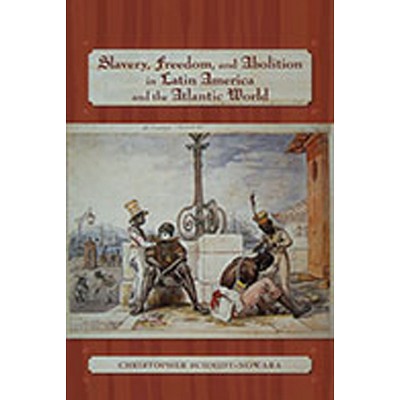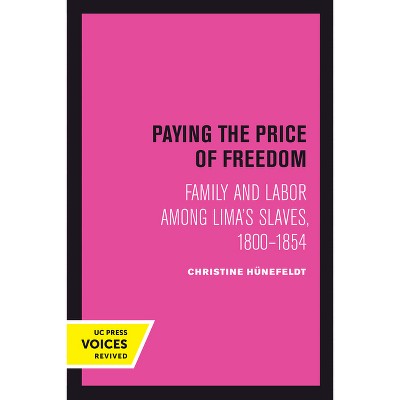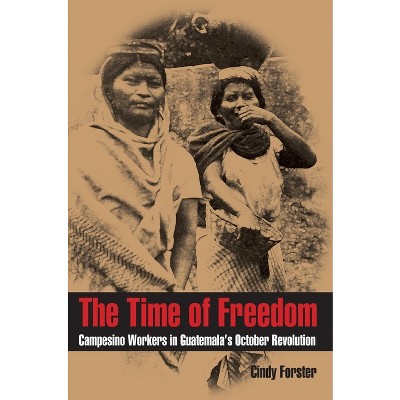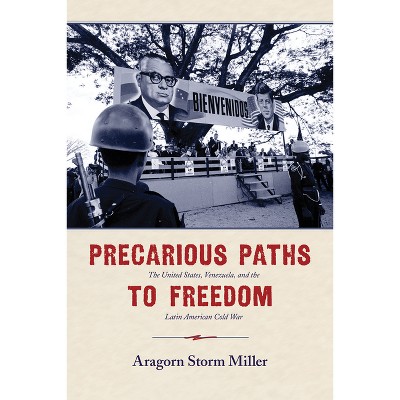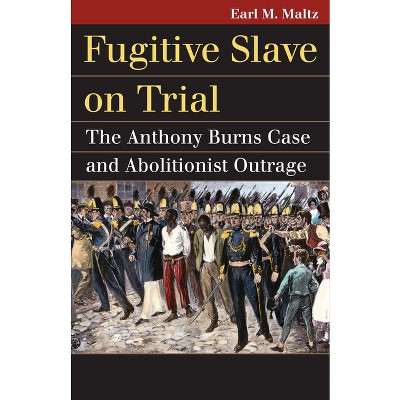About this item
Highlights
- The curious tale of two priest impersonators in late colonial Mexico Cut loose from their ancestral communities by wars, natural disasters, and the great systemic changes of an expanding Europe, vagabond strangers and others out of place found their way through the turbulent history of early modern Spain and Spanish America.
- About the Author: William B. Taylor is Muriel McKevitt Sonne Professor of History, Emeritus, at the University of California, Berkeley.
- 224 Pages
- History, Latin America
Description
About the Book
"Cut loose from their ancestral communities by wars, natural disasters, and the great systemic changes of an expanding Europe, vagabond strangers and others out of place are often lost from the turbulent history of early modern Spain and Spanish America. As shadowy characters inspiring deep suspicion, fascination, and sometimes charity, they prompted a stream of decrees and administrative measures that treated them as nameless threats to good order and public morals. The vagabonds and impostors of colonial Mexico are as elusive in the written record as they were on the ground, and the administrative record offers little more than commonplaces about them. Fugitive Freedom locates two of these suspect strangers, Joseph Aguayo and Juan Atondo, both priest impersonators and petty villains in central Mexico during the last years of Spanish rule. Displacement brought pâicaros to the forefront of Spanish literature and popular culture-a protean assortment of low life characters, seen as treacherous but not usually violent, shadowed by poverty, on the move and on the make in selfish, sometimes clever ways as they navigated a hostile, sinful world. What to make of those aspects of the lives and longings of Aguayo and Atondo, which resemble one or another literary pâicaro? Did they imagine themselves in literary terms, as heroes of a certain kind of story? Could impostors like these have become fixtures in everyday life with neither a receptive audience nor permissive institutions? With Fugitive Freedom, William B. Taylor provides a rare opportunity to examine the social histories and inner lives of two individuals at the margins of an unfinished colonial order coming apart as it was coming together"--Book Synopsis
The curious tale of two priest impersonators in late colonial Mexico
Cut loose from their ancestral communities by wars, natural disasters, and the great systemic changes of an expanding Europe, vagabond strangers and others out of place found their way through the turbulent history of early modern Spain and Spanish America. As shadowy characters inspiring deep suspicion, fascination, and sometimes charity, they prompted a stream of decrees and administrative measures that treated them as nameless threats to good order and public morals. The vagabonds and impostors of colonial Mexico are as elusive in the written record as they were on the ground, and the administrative record offers little more than commonplaces about them. Fugitive Freedom locates two of these suspect strangers, Joseph Aguayo and Juan Atondo, both priest impersonators and petty villains in central Mexico during the last years of Spanish rule.Displacement brought pícaros to the forefront of Spanish literature and popular culture--a protean assortment of low life characters, seen as treacherous but not usually violent, shadowed by poverty, on the move and on the make in selfish, sometimes clever ways as they navigated a hostile, sinful world. What to make of the lives and longings of Aguayo and Atondo, which resemble those of one or another literary pícaro? Did they imagine themselves in literary terms, as heroes of a certain kind of story? Could impostors like these have become fixtures in everyday life with neither a receptive audience nor permissive institutions? With Fugitive Freedom, William B. Taylor provides a rare opportunity to examine the social histories and inner lives of two individuals at the margins of an unfinished colonial order that was coming apart even as it was coming together.
From the Back Cover
"In Fugitive Freedom, William B. Taylor--the master of historical writing on colonial Mexico--shows how the charlatan lives of two Mexican men from the social margins unmask much more than a plebeian, pícaro underworld in New Spain. The vagrant hearts, lies, and impersonations of the two tricksters and the punishments they endured show how Spanish rule in the Americas, with its Inquisition, state managers, and widespread inequalities, was failing and flourishing at the same time."--Davíd Carrasco, Neil L. Rudenstine Professor for the Study of Latin America, Harvard Divinity School "Precarity bites and misfortune beckons, struggle and imposture are ubiquitous, and only fictions seem true. Taylor's investigation offers a remarkably immersive experience. Broad and penetrating research and a light touch allow two of society's purported ne'er-do-wells to emerge from the fascinating stories they tell."--Kenneth Mills, J. Frederick Hoffman Professor of History, University of Michigan "Erudite and empathetic in equal measure, Fugitive Freedom challenges us to rethink our understanding of late colonial Mexico. Taylor's meticulous reconstruction of the hidden worlds of two outcasts--both priest impersonators--reveals not only their fragmented and marginalized lives but also the fractures and chasms in the edifice of the Spanish empire more broadly. It is a stunning work of historical scholarship."--Susan Deans-Smith, Associate Professor of History, University of Texas at AustinReview Quotes
"The book's detail and verve, along with Taylor's penchant for provocative questions make Fugitive Freedom ideal for the undergraduate classroom, including not only courses on Latin American history, but on the historian's craft as well."-- "The Middle Ground Journal"
"William B. Taylor has written a wonderfully entertaining and accessible story about two Mexican pícaros who lived extraordinary lives at the margins of colonial society. . . . this is an important book that gives us new insight into life in colonial Mexico."-- "EIAL: Estudios Interdisciplinarios de América Latina"
"William Taylor is one of Mexican history's great masters of social history. . . .No one historian is going to solve this riddle about fiction and lived reality, and Taylor's lively study offers welcome grist for the historiographic mill on the subject."-- "Journal of Arizona History"
"Compact and beautifully written."
-- "Hispanic American Historical Review""This readable account of . . . curious lives opens windows onto many aspects of everyday life in colonial Mexico."-- "Literary Review"
"In sum, Fugitive Freedom weaves together extraordinary Inquisition cases to illuminate the cracks and imperfections built into the edifice of the Spanish Empire. No doubt, historians, students, and enthusiasts of colonial Mexico will take delight in Taylor's sharp analysis and supple prose."
-- "H-Net: Humanities & Social Sciences Online""An extremely rewarding book. . . . Above all, the book is characterized by Taylor's insightful historical analysis, which brings the past to life but always treats its own terms and in all of its complexity."-- "Journal of Colonialism and Colonial History"
About the Author
William B. Taylor is Muriel McKevitt Sonne Professor of History, Emeritus, at the University of California, Berkeley. His books on Latin American history include Theater of a Thousand Wonders: A History of Miraculous Images and Shrines in New Spain, as well as Drinking, Homicide, and Rebellion in Colonial Mexican Villages and Magistrates of the Sacred: Priests and Parishioners in Eighteenth-Century Mexico.







